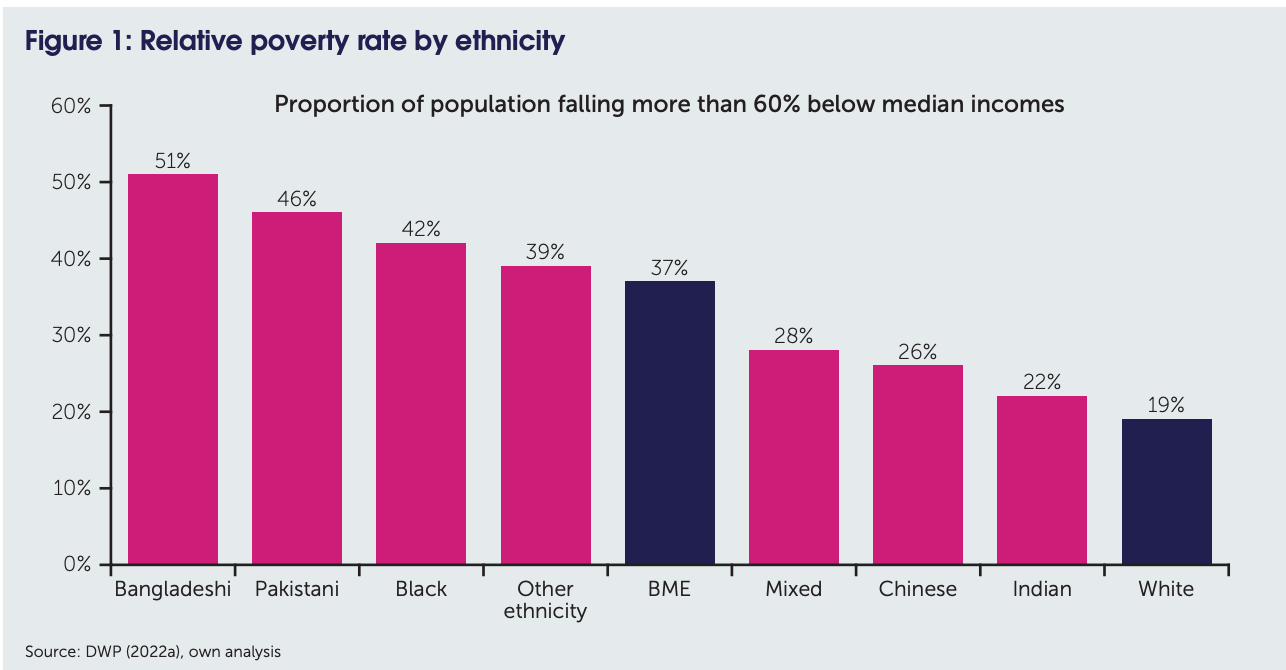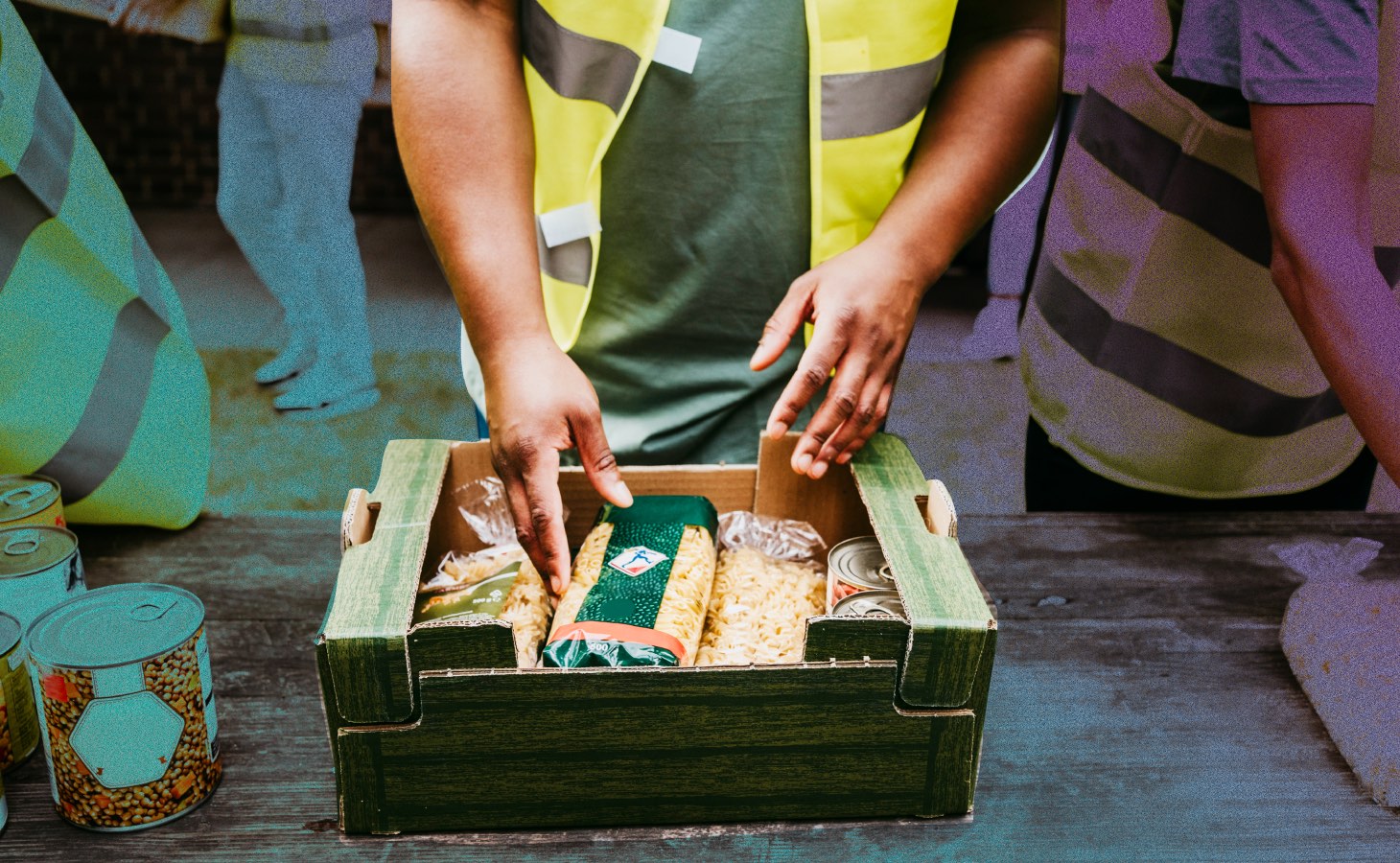Black and minority ethnic people in the UK are twice as likely to be in ‘deep poverty’ than white people, according to a new analysis. Seeing that many Muslims in the UK are from this group, it means a disproportionate number of Muslims are facing extreme hardship and struggling to afford everyday basics.
The Runnymede Trust charity, which published the briefing, said black and minority ethnic people are currently 2.2 times more likely to be in ‘deep poverty’ than white people, with Bangladeshi people more than three times more likely.
Black and minority ethnic people are 2.5 times more likely to be in ‘relative poverty’ than white people but this gets more pronounced when focusing on Black (2.7), Pakistani (3.3) and Bangladeshi (4.2) people exclusively.
According to the 2011 Census, Bangladeshis and Pakistanis make up over half the Muslim population in the UK. It means Muslims are more exposed to the cost-of-living crisis.

Runnymede’s Head of Research Dr Shabna Begum said that everyone will be affected by the cost-of-living crisis, but their research shows “that some groups are less equal and more impacted than others.”
“Differences in relative and deep poverty may be something we talk about as percentage figures, but in real life we are talking about the pounds and pennies that make the difference between survival and destitution,” said Dr Begum.
“For so many of our Black and minority ethnic families this means making decisions about whether to use their gas cooker or only buy food that can be heated in a microwave, whether parents eat or feed their prepayment electricity meter, or whether they can afford the £1 donation to charity their child’s school is requesting for non-uniform day. These are devastating decisions which leave scars that last for generations,” she added.
Bangladeshi, Pakistani and Black people most affected
The ‘Energy Price Guarantee’ announced earlier this month will lift more white households out of fuel poverty than black and minority ethnic households, said the briefing. Just under a third (32%) of white people are likely to experience fuel poverty this winter compared to more than half (52%) of black and minority ethnic people, rising to two-thirds (66%) for Pakistani and Bangladeshi people.
“Such developments present a grave and disproportionate risk to Black and minority ethnic people (especially those on a low income) with destitution a serious possibility for many over the coming winter. For those towards the lowest end of the income distribution, the rising cost of fuel and energy will push many into negative incomes,” it said.
The briefing added that changes to the tax and social security system “have been highly regressive, but also racialised” over the last decade.
It said white families now receive £454 less a year on average in cash benefits than they did a decade ago. But this rises to £806 less a year for black and minority ethnic families and even higher to £1,635 for black families.
The analysis said that black and minority ethnic people were most affected by the 2007-08 global financial crisis and Covid.
During Covid, compared to white men, Bangladeshi men were four times more likely to be employed in shut-down sectors, Pakistani men were almost three times more likely, and black African and black Caribbean men were both 50% more likely to work in sectors affected by COVID-19.
“As we head into a new crisis of living standards, and likely recession, a renewed and reimagined commitment to protecting those in the deepest forms of poverty is urgently needed,” said Runnymede Trust’s press release.
“Without significant public investment in social security and infrastructure, and tailored commitments to job security and fair wages, our communities will continue to face hardships unknown for generations,” it added.
It made several recommendations in the report, including the need for targeted support to the communities most in trouble.
Last year a report from Joseph Rowntree Foundation revealed that poverty rates for Bangladeshi and Pakistani communities in the UK are higher than for other ethnic groups.
















